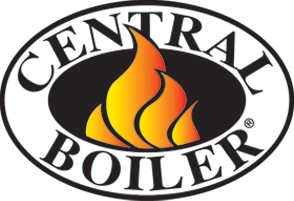
As the seasons change, so do the demands placed on your HVAC (Heating, Ventilation, and Air Conditioning) system. Whether you’re transitioning from the cold of winter to the warmth of spring or from the heat of summer to the coolness of fall, preparing your HVAC system for seasonal changes is essential for maintaining comfort and energy efficiency and preventing unexpected breakdowns. In this blog, we’ll cover the steps you should take to ensure your HVAC system is ready for the new season.
Change Your Air Filters
One of the simplest yet most important tasks in preparing your HVAC system for a seasonal change is replacing the air filters. Clean air filters are essential for efficient operation and good indoor air quality.
- Why It’s Important: Air filters trap dust, dirt, pollen, and other airborne particles, preventing them from circulating through your home. Over time, filters become clogged, reducing airflow and forcing your HVAC system to work harder, which can lead to higher energy bills and increased wear and tear.
- When to Replace: It’s recommended to check your air filters monthly and replace them at least every three months or more often if you have pets, allergies, or live in a dusty environment. As you transition between seasons, it’s an ideal time to replace the filters to ensure optimal performance.
By maintaining clean air filters, you can improve your system’s efficiency, enhance indoor air quality, and extend the lifespan of your HVAC unit.
Schedule a Professional HVAC Inspection
Before the heating or cooling season begins, it’s a good idea to schedule a professional inspection of your HVAC system. A trained technician can identify potential issues and perform any necessary maintenance to ensure your system is ready to handle the upcoming seasonal demands.
- What’s Included: During an inspection, the technician will check various components of your HVAC system, including the thermostat, electrical connections, refrigerant levels, and airflow. They’ll also clean the coils, lubricate moving parts, and inspect the ductwork for leaks or blockages.
- Why It Matters: Regular inspections can help catch small problems before they become major issues, saving you money on repairs and preventing unexpected breakdowns. A well-maintained system also operates more efficiently, which can lead to lower energy bills.
Scheduling a professional inspection before the start of each season ensures that your HVAC system is operating at peak efficiency and ready to keep your home comfortable.
Clean the Outdoor Unit
Your HVAC system’s outdoor unit, typically the air conditioner or heat pump, is exposed to the elements year-round. Over time, debris such as leaves, dirt, and grass clippings can accumulate around the unit, obstructing airflow and reducing efficiency.
Steps to Clean:
- Clear Debris: Remove any debris that has accumulated around the unit, including leaves, branches, and dirt. Ensure there are at least two feet of clearance around the unit for proper airflow.
- Clean the Coils: The outdoor unit’s coils are responsible for releasing heat from your home. Dirty coils can’t release heat effectively, reducing the system’s efficiency. Use a garden hose to gently clean the coils, being careful not to bend the fins.
- Check the Fins: Inspect the fins on the outside of the unit for any damage. If the fins are bent, use a fin comb to straighten them. This will help improve airflow and ensure your system operates efficiently.
Regularly cleaning and maintaining the outdoor unit is essential for keeping your HVAC system running smoothly, especially during the transition from one season to another.
Test Your Thermostat
Your thermostat is the control center of your HVAC system, and it’s essential to ensure it’s working correctly before the start of a new season.
- Calibration Check: Over time, thermostats can become uncalibrated, causing your system to run inefficiently. Test the thermostat by setting it to different temperatures and ensuring the system responds appropriately. If you notice any discrepancies, it may be time to recalibrate or replace the thermostat.
- Upgrade to a Programmable Thermostat: If you’re still using a manual thermostat, consider upgrading to a programmable or smart thermostat. These devices allow you to set temperature schedules that match your daily routine, optimizing energy use and reducing utility bills.
By ensuring your thermostat is accurate and functioning correctly, you can maintain consistent comfort in your home while maximizing energy efficiency.
Inspect and Clean the Ductwork
Ductwork is responsible for distributing conditioned air throughout your home. Over time, dust, dirt, and debris can accumulate in the ducts, leading to reduced airflow and decreased indoor air quality.
- Visual Inspection: Start by visually inspecting the accessible areas of your ductwork for signs of damage, leaks, or blockages. Pay particular attention to joints and connections, as these are common areas for leaks to occur.
- Professional Cleaning: If you notice significant dust buildup, mold, or pests in your ductwork, it’s best to schedule a professional duct cleaning. This service can improve airflow, reduce allergens, and enhance overall indoor air quality.
- Seal Leaks: Leaky ducts can cause conditioned air to escape, leading to increased energy consumption and uneven heating or cooling. If you detect leaks, consider sealing them with mastic sealant or metal tape to improve efficiency.
Regular inspection and cleaning of your ductwork ensure that your HVAC system can deliver air effectively throughout your home, maintaining comfort and efficiency.
Test the System’s Performance
Once you’ve completed the necessary maintenance tasks, it’s important to test your HVAC system’s performance to ensure it’s ready for the upcoming season.
- System Run Test: Turn on your HVAC system and let it run through a full cycle. Pay attention to how quickly the system reaches the desired temperature and whether it maintains that temperature consistently. Listen for any unusual noises that could indicate a problem.
- Check Airflow: Ensure that the airflow from your vents is strong and consistent. Weak airflow could indicate an issue with the blower, ductwork, or air filter.
- Monitor Energy Usage: Keep an eye on your energy bills during the first month of the new season. A sudden increase in energy consumption could signal that your system isn’t operating efficiently, possibly due to a maintenance issue.
By testing your HVAC system’s performance before the start of the season, you can identify any issues early and address them before they lead to more significant problems.
Consider an HVAC Upgrade
If your HVAC system is old or has required frequent repairs, it might be time to consider upgrading to a newer, more efficient model. Modern HVAC systems offer improved energy efficiency, better performance, and advanced features like smart thermostats and zoning capabilities.
- Energy Efficiency: Newer HVAC systems are designed to be more energy-efficient, reducing your carbon footprint and lowering utility bills. Look for systems with high SEER (Seasonal Energy Efficiency Ratio) ratings for the best efficiency.
- Enhanced Comfort: Modern systems often come with advanced features like variable-speed compressors, which provide more consistent temperatures and improved humidity control.
- Rebates and Incentives: Many utility companies offer rebates and incentives for upgrading to energy-efficient HVAC systems. These can help offset the cost of a new system, making it a more affordable investment.
Upgrading your HVAC system before the start of a new season ensures that you’ll enjoy reliable, efficient performance when you need it most.
Conclusion
Preparing your HVAC system for seasonal changes is essential for maintaining comfort, improving energy efficiency, and preventing costly breakdowns. By following these steps—changing air filters, scheduling a professional inspection, cleaning the outdoor unit, testing your thermostat, inspecting ductwork, testing system performance, and considering an upgrade—you can ensure your HVAC system is ready to handle the demands of the new season. Regular maintenance not only enhances your system’s performance but also extends its lifespan, saving you money and ensuring a comfortable home environment year-round.
Do you have questions, or are you ready to start your next project? Explore our services at Elite Comfort Experts!









